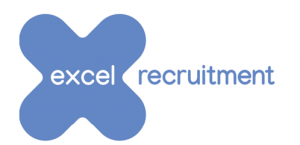Urgent call on government to support SMEs

Recent and upcoming changes to Ireland’s working landscape could push up employment costs by 36% over the next two years for businesses
Government must immediately clarify the increased employment costs faced by Irish SMEs as a result of rises in the national minimum wage, the introduction of the planned living wage, and other measures proposed to improve working conditions in Ireland.
This is the contention of nationwide recruitment experts at Excel Recruitment, who say that according to their calculations, recent and upcoming changes to Ireland’s working landscape could push up employment costs by 36% over the next two years for businesses. They report that with the living wage set to become the new national minimum wage in January 2026, employers will expect to pay an additional €3.70 per hour per employee – the equivalent of a 33% increase – in the next two years when paying the living wage. On top of this, employers will need to factor in two additional costs to their wage costs: 13c per hour for new sick pay entitlements and 23c per hour for the employer’s contribution to Ireland’s first Auto Enrolment pension scheme. All of this adds up to an additional €4.06 per hour to the current minimum wage rate – the equivalent of a 36% wage cost increase in these next two years. Furthermore, employers are now also facing significant increases in PRSI costs following the government’s recent announcement that it is to increase PRSI for employers, employees and the self-employed over the next five years.
Additional supports

Shane McLave, managing director of Excel Recruitment
The recruitment specialists are calling on the government to introduce additional supports for businesses to help them manage the additional costs they are facing as a result of these measures.
Shane McLave, managing director of Excel Recruitment, which works with more than 1,000 SMEs throughout the country explains:
“In a recent response to a parliamentary question, the Minister for Enterprise Trade and Employment, Simon Coveney, said that his department is assessing the combined impact of the measures proposed to improve working conditions in Ireland, including moving to a living wage, pension auto-enrolment, the right to request remote work, sick pay legislation and improvements to parent’s leave and parent’s benefit. Minister Coveney said that this analysis would be published by the end of 2023, but we haven’t seen it. The reality is Irish SMEs who employ 60% of the working population, need this guidance now. Already this year, businesses have had to incorporate changes around statutory sick pay, domestic leave entitlements and an increase in the minimum wage. They are now facing into a year of even greater change as the Auto-Enrolment looms, and the right to request remote working legislation pends.
Employers are not against these reforms, they are as invested as anyone into making them work – but they cannot be expected to play their part without outside support.
To ensure businesses can plan for, and survive 2024 and beyond, the government needs to put in place far greater supports than those that are currently available. It imperative that the analysis Minister Coveney speaks of gives businesses a true indication as to how much these measures will ultimately cost them in the coming years support measures for businesses so they can better weather these costs. Otherwise, we could see many businesses go under as a result of taking on board costs which ultimately are the government’s responsibility.”
Overview of costs
 Excel Recruitment highlighted the following costs in the pipeline for businesses.
Excel Recruitment highlighted the following costs in the pipeline for businesses.
• The national minimum wage increased from €11.30 to €12.70 an hour on 1 January, 2024. This will likely increase to €15 per hour in 2026 when the living wage is set to replace the national minimum wage, according to projections from the Low Pay Commission.
• Statutory sick pay is paid at a replacement rate of 70% of a person’s normal pay, up to a maximum of €110 per day. The entitlement to statutory sick pay increased from three to five days this year, it will increase to seven days in 2025 and ten days in 2026.
• Auto-enrolment will be introduced on a phased basis with an employer contribution of 1.5% of gross earnings up to €80,000 in the first three years.
McLave added: “The increase in the minimum wage will be a smack in the face for the many small businesses who are facing high energy bills and additional sick pay entitlements. Prior to January 2023, there was no obligation on employers to pay sick pay. Many employers have struggled to meet the cost of statutory sick pay since it was introduced in 2023 and this cost is only set to rise this year and beyond.
As the country grapples with a cost-of-living crisis, what does the government think businesses will do with such a large rise in wage, sick pay costs and PRSI hikes: close or pass those costs onto the consumer and drive inflation higher?
There seems to be a belief that employers can absorb whatever costs the government sends their way – however, the recent increase in business failures shows clearly that this is not the case. While the supports for small businesses announced in the Budget are welcome, they don’t go far enough.
There has been a significant increase in the numbers of businesses shutting up shop in 2023 – corporate insolvencies in the first six months of 2023 were almost a third higher than the same period in 2022. Business is paying the price for poor management of state finances but it’s going to backfire as business are forced to close due to spiraling costs.”
Calls to reinstate 9% VAT
To help the hospitality sector shoulder the increased employment costs it is facing in 2024, Excel Recruitment is urging the government to reinstate the reduced 9% VAT rate for the hospitality and tourism sector and to also consider extending the 9% rate to other small businesses too.
According to McLave: “The government has made much of its decision to extend the 9% VAT reduction for gas and electricity until 31st October 2024. However, while this measure will offer some help to businesses, it’s not a business specific measure and it is also very narrow in its focus.
Today’s businesses are grappling with the challenges of rising energy and staff costs, interest rate hikes and major staff shortages, particularly in the retail and hospitality sectors.
The VAT rate for the hospitality and tourism sector was reinstated to 13.5% in September 2023, after being reduced to 9% during and in the wake of the Covid pandemic, in order to ease the enormous pressure the sector found itself under at the time. There has therefore been an increase in the VAT charged, and therefore the price of, hotel stays, hotel and restaurant meals, hairdressing, and trips to cinemas and theatres since September. There is already evidence that rising living costs have forced people to cut back on discretionary spending like hotel stays and meals out and unless something substantial is done, this will only continue. The reinstatement of the 13.5 VAT rate, as well as the cost of the various other government measures coming this year and beyond, could be the straw that breaks the camel’s back for many hospitality and tourism businesses. This would mean repercussions for staff, as well as the consumers, businesses and local economy that rely on such businesses. Something has to give. Reinstating the reduced 9% VAT rate for the hospitality and tourism sector, as well as extending it to other small businesses, is just one thing that the government could do to offer some reprieve to the many businesses struggling to keep their head above water today.”






